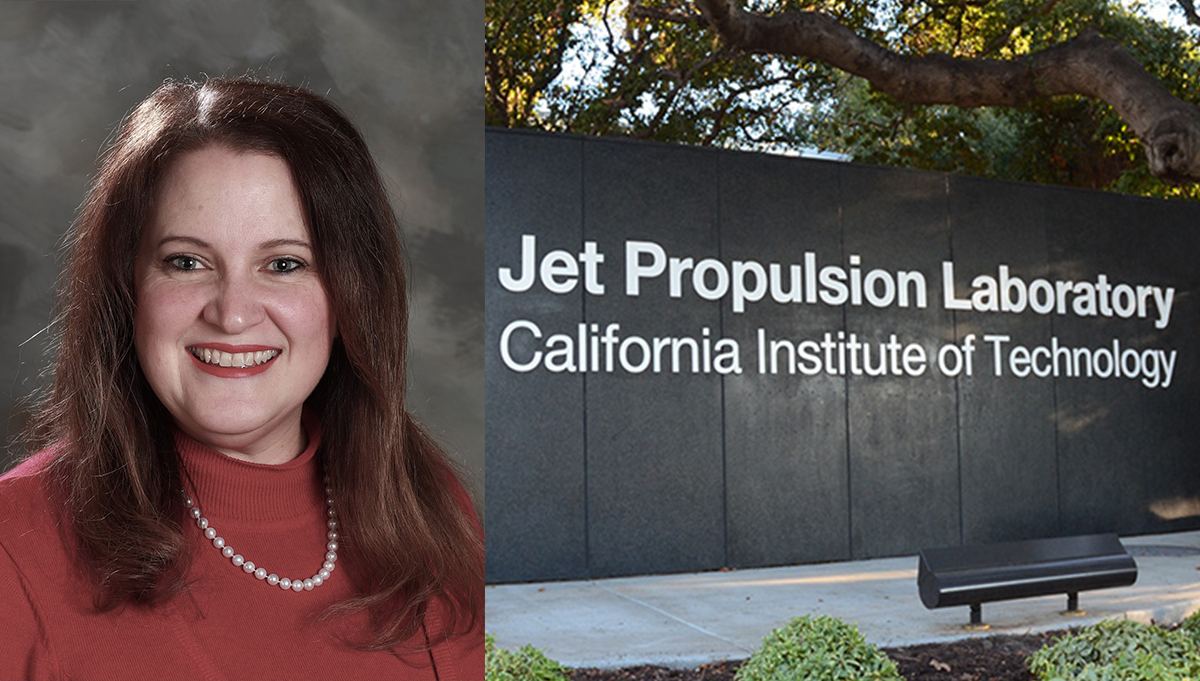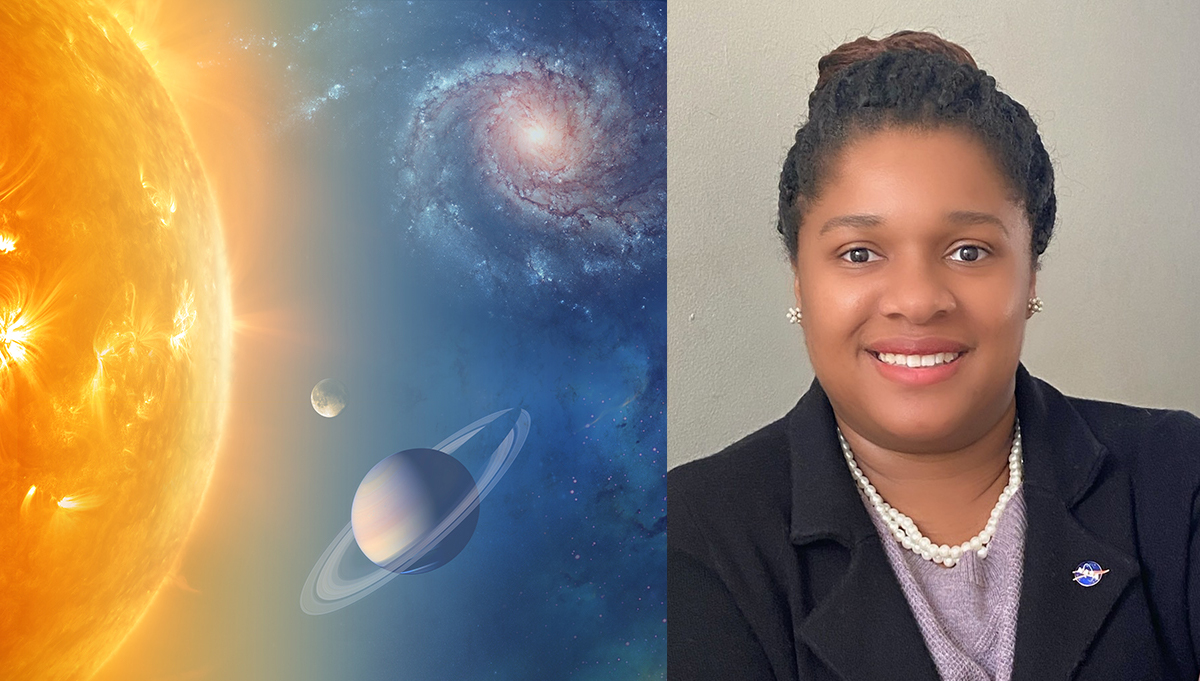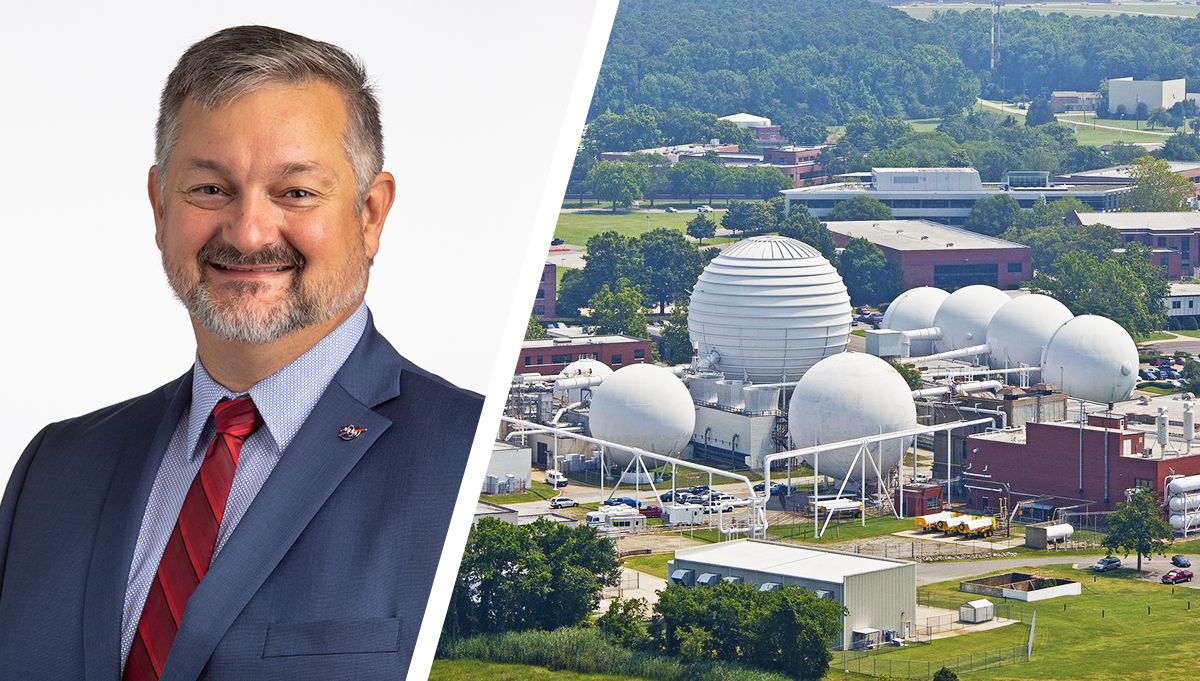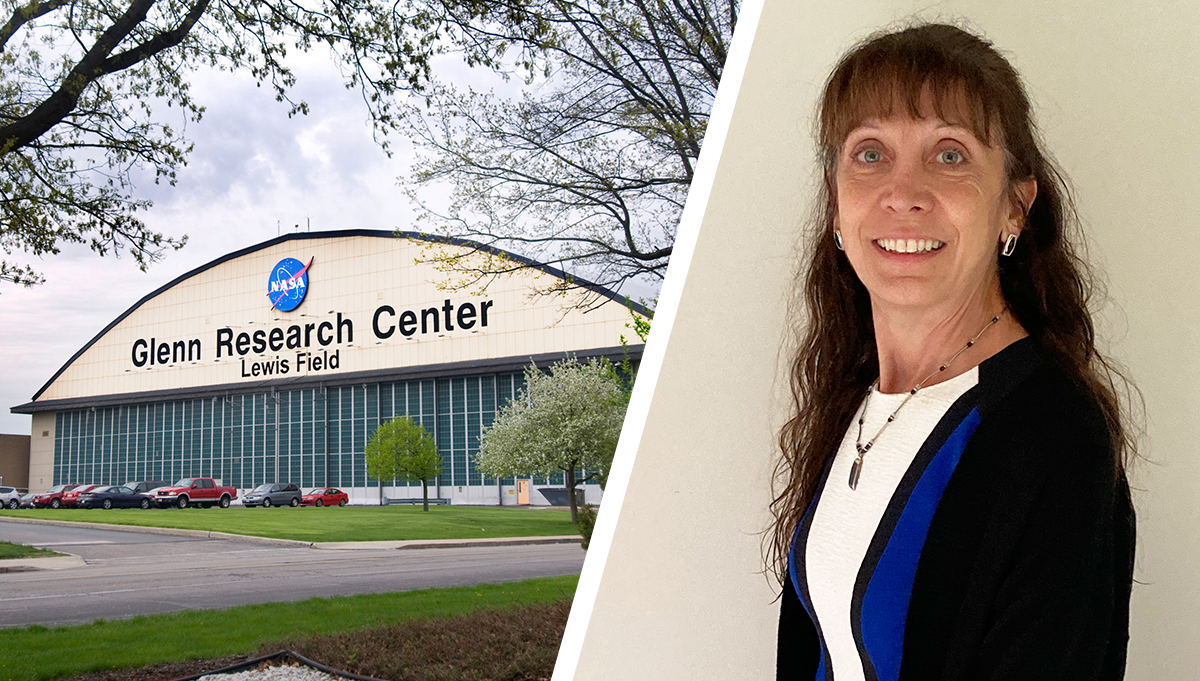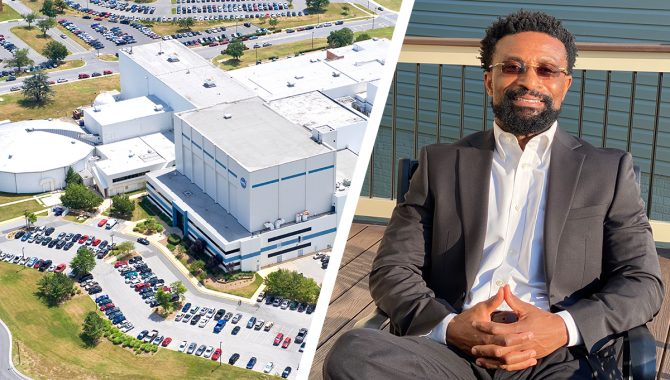
Goddard Space Flight Center CKO Moses Adoko
Credit: NASA
Moses Adoko discusses knowledge sharing at NASA’s Goddard Space Flight Center.
Moses Adoko serves as the Chief Knowledge Officer (CKO) for NASA’s Goddard Space Flight Center (GSFC). Adoko leads and directs programs designed to cultivate and sustain a learning culture that supports mission success at Goddard. He also serves as the Program Manager of the Goddard Senior Fellows, a scientific and technical advisory committee that advises the Center Director, especially on issues related to research policy, strategy and innovative solutions. Prior to his appointment as the Goddard CKO, Adoko served as Deputy Chief Knowledge Officer for the agency.
Where does the knowledge management function reside within your organization?
The KM function is a strategic and priority activity for Goddard. The program resides in the Office of the Center Director, which affords the program the needed center-wide coverage and coordination with stakeholders across the center, and of course, the operational efficiency. So, I think it’s really, really important that this program continues to be housed within the Center Director’s Office.
What are your thoughts on how knowledge sharing affects mission success?
There is a direct link between knowledge sharing and mission success. The sharing process allows our practitioners to discuss critical insights that enable successful execution of projects, but often not obvious or apparent in our procedures, processes, work guidelines and work instructions. So, the sharing results also in fresh ideas being taken to help implementation of new projects or future missions. And from that standpoint, I would say knowledge sharing is very important and has a direct impact on mission success.
How do you think NASA’s technical workforce benefits from knowledge sharing?
The sharing of technical knowledge or project implementation dynamics — as I like to put it — or team dynamics across NASA is important because it allows our teams and projects at different locations and different phases in their life cycle to benefit from a broad toolset of ideas instead of just what they know and what they have available to them. The knowledge sharing activities are a vital source of critical knowledge for solving problems.
Are there any successful knowledge efforts or best practices in your organization that you’d like to highlight?
The first best practice that comes to mind is our Pause and Learn exercise. It is an impressive open forum for identifying lessons for improvement and capturing those lessons for the sole or primary purpose of learning and improvement. This best practice allows our teams and projects to take charge. This is what I really like about this process. It allows individual teams and projects to take charge of their learning and improvement. So it’s very intrinsic. The teams tend to have with this process the intrinsic motivation to learn and improve, so I really like our Pause and Learn toolset for KM.
Are you observing any trends or cultural shifts that affect knowledge management going forward?
There is indeed a cultural shift taking place that is impacting the practice of knowledge management—and in a positive direction. The post-COVID-19 pandemic world will utilize knowledge management more than previously projected, I will submit. Organizations and government institutions have realized the need for effective knowledge management to enable successful service delivery from just anywhere. And so, the post-COVID-19 pandemic world will utilize knowledge management extensively.
What’s the biggest misunderstanding that people have about knowledge?
Perhaps I’m the ‘chief whining person’ on this question across the agency, right? This is an interesting question for a chief knowledge officer. I used to get frustrated over the misunderstanding, or some may say misconception, that data is knowledge or information is knowledge. But I’m happy to report that I have overcome my frustration. I treat this misunderstanding as an opportunity to educate others and my stakeholder communities about knowledge and the value of knowledge to mission success.
What impact are technologies such as machine learning and artificial intelligence beginning to have on your knowledge sharing activities?
The prospects and capabilities of technologies such as machine learning and artificial intelligence have already started to shape the KM discipline. Despite the fact that these technologies are yet to attain the maturity state needed to deploy them for knowledge sharing and KM in general, our communities within NASA and industry as a whole have started making demands for the application. We have to move quickly in this direction to research the tools, test them, pilot them on a small scale, and then make the decision as to which direction we want to go. Certainly, these tools will shape the discipline of knowledge management.






